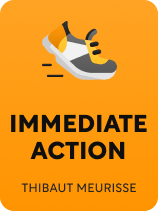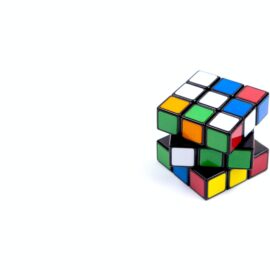

This article is an excerpt from the Shortform book guide to "Immediate Action" by Thibaut Meurisse. Shortform has the world's best summaries and analyses of books you should be reading.
Like this article? Sign up for a free trial here.
Do you tend to blow things out of proportion? How can you embody a more realistic mindset?
When you blow things out of proportion, you’re looking at something with an exaggerated view. When it comes to a simple task, you might think it’s too difficult or big to handle.
Find out how to stop blowing things out of proportion, according to Immediate Action by Thibaut Meurisse.
Stop Blowing Tasks Out of Proportion
Meurisse notes that many of us procrastinate when we distort tasks into something much bigger and more important than they really are. Your mind might have a habit of telling you that the items on your to-do list are far too difficult or monumental, as a way of deterring you from expending the energy on trying to achieve those tasks.
You can get around blowing things out of proportion is by recognizing your tasks for what they are. The goal is to see beyond the illusion that your tasks are too big and too important for you to successfully tackle, and put the items on your to-do list back into perspective. Meurisse recommends looking to other people as an example and adopting the attitude that you can do most of the things that others can do.
Additionally, if something feels impossible to you, that might be a good reason to try to accomplish it: Imagine the boost of self-confidence that you’ll experience after you achieve something that felt unattainable, whether it’s stepping up to give a big presentation at work or striking up a friendship with a classmate you’ve always admired.
| How Can We Look at Our Tasks More Realistically? If you struggle to determine how difficult a task will really be, you’re not alone. Psychologists use the phrase “hard-easy effect” to describe how we often feel overconfident about difficult tasks and under-confident about simpler tasks. This cognitive bias might be one reason why we sometimes overestimate the difficulty of a task, as Meurisse describes. Researchers believe this bias comes about because we’re generally bad at making accurate predictions about the future. They’ve also noticed that we spend a disproportionate amount of time answering simpler, easier questions (which might translate to spending more time working on the to-do list items that you perceive as easier). To more realistically assess the tasks on your to-do list, you might cultivate a little more knowledge about each task, especially if it’s in an area that’s new or unfamiliar to you. Following Meurisse’s advice to look to others’ example, you could learn about what other people have accomplished (and how they’ve achieved it) to get a better idea of what it’ll take for you to succeed at a similar task. This might also help you to avoid a cognitive bias related to the hard-easy effect: the Dunning-Kruger effect. This infamous bias kicks in when we routinely overestimate our ability in areas where we aren’t very skilled. We often make this mistake not only because we’re too confident about our own skills, but also because we fail to recognize the skills and knowledge that have led to other people’s success. To conquer the Dunning-Kruger effect, experts recommend trying to continually learn more and practice your skills. You can also make a point of asking others for constructive criticism about your performance. And you might find it helpful to consciously question your assumptions and seek out information that might challenge your ideas. Particularly if the tasks you need to get done will be difficult for you, it might be worthwhile to consciously work on your confidence, too. Therapist Amy Morin, author of 13 Things Mentally Strong People Don’t Do, writes that it’s important to prove to your brain that you’re capable of doing difficult things. Trying something new, practicing a new skill, or even achieving something that previously felt impossible (as Meurisse suggests) can show your brain that you have the skills to do things that aren’t easy. That can result in a boost of confidence, which makes it easier to keep things in perspective and take big steps toward the goals you really want to achieve. |

———End of Preview———
Like what you just read? Read the rest of the world's best book summary and analysis of Thibaut Meurisse's "Immediate Action" at Shortform.
Here's what you'll find in our full Immediate Action summary:
- How procrastination was useful in early human evolution—but not anymore
- How to face your procrastination habit head-on and build healthier habits
- Why we tend to do nothing when we have too much to do






